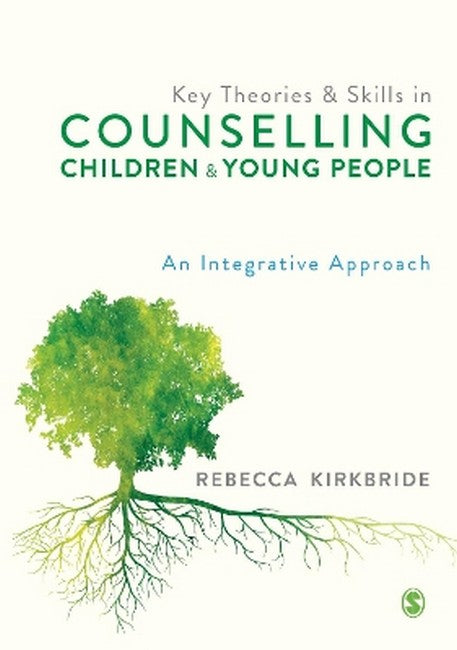Introduction Part I - Core Knowledge: Understanding Development from 0-18 years 1.1 Development - A Dynamic Interplay Model 1.2 The Importance of Play 1.3 Theory of Mind 1.4 Cognitive Development 1.5 Attachment Theory 1.6 Object Relations Theory 1.7 Humanistic Theories of Development 1.8 Neurobiological Development 1.9 Puberty & the Adolescent Transition 1.10 Environmental & Systemic Factors 1.11 Developmental Implications for Counselling Part II - Key Skills: The Therapeutic Process 2.1 Core Principles of Integrative Counselling with Children and Adolescents 2.2 Core Relationship Components 2.3 The Therapeutic Frame 2.4 Building Rapport 2.5 Contracting 2.6 Limit-Setting 2.7 Assessment & Integrative Formulations 2.8 Risk Assessment & Safeguarding 2.9 Confidentiality & Consent 2.10 Outcome & Process Measures 2.11 Cultural Competence 2.12 Working with Parents/Carers 2.13 Record-Keeping & Data Protection 2.14 Developing & Sustaining the Therapeutic Relationship 2.15 Managing Ruptures in the Therapeutic Alliance 2.16 Transference & Countertransference 2.17 Developing Advanced Empathy 2.18 Tracking 2.19 Endings 2.20 Ethical Issues 2.21 Self-Disclosure 2.22 Working with Other Professionals 2.23 Self-Care for Counsellors 2.24 Clinical Supervision Part III - Key Skills: Interventions, Techniques & Strategies 3.1 Skills & Interventions 3.2 Symbol & Metaphor 3.3 Play-Based Interventions 3.4 Creative-Arts Interventions 3.5 Therapeutic 'Chat' 3.6 Cognitive-Behavioural Therapy (CBT) 3.7 Working with Emotions 3.8 Mindfulness and Relaxation Techniques 3.9 Groups 3.10 Working with Risk 3.11 Self-Harm 3.12 Food & Body Issues 3.13 Alcohol & Substance Misuse 3.14 Trauma & Abuse 3.15 Risky Sexual Behaviour 3.16 Identity 3.17 Sexuality & Gender Identity 3.18 Bullying 3.19 Online Risk 3.20 Family Breakdown & Instability 3.21 Bereavement & Loss 3.22 Self-Esteem 3.23 Anxiety 3.24 Depression 3.25 Diagnosis, Medication & Psychiatric Presentations 3.26 Autistic Spectrum Disorder (ASD) & Attention-Deficit Hyperactivity Disorder (ADHD) 3.27 Special Educational Needs & Disabilities (SEND) 3.28 Visual & Hearing Impairments 3.29 Physical Disability 3.30 Chronic Illness 3.31 Resilience Part IV - Key Considerations: Contexts & Client Groups 4.1 Considerations & Contexts 4.2 Educational Settings 4.3 Private Practice 4.4 Child & Adolescent Mental Health Services 4.5 Voluntary & Community Services (VCS) 4.6 Online Counselling 4.7 Refugee Communities 4.8 Looked-After Children
Request Academic Copy
Please copy the ISBN for submitting review copy form
Description
I think this is an excellent text which will be highly valued by trainers and students alike. -- Margaret Robson * Review * I think it is an excellent, pertinent and practical text. This should be a core text for all CYPF training courses across the UK and beyond. I will be buying it for staff and student reference and recommending it to students and to Universities locally. -- Edith Bell * Review *

